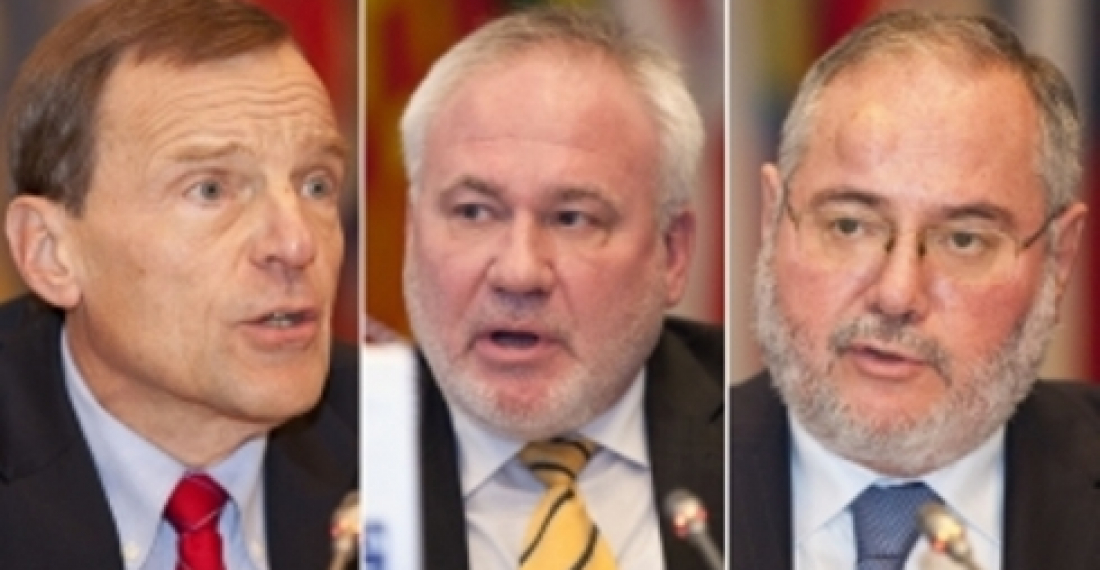The Co-Chairs of the OSCE Minsk Group (Ambassadors Robert Bradtke of the United States, Igor Popov of the Russian Federation, and Jacques Faure of France) and the Personal Representative of the OSCE Chairperson-in-Office, Ambassador Andrzej Kasprzyk, will travel to the region next week for consultations with the political leadership of Armenia and Azerbaijan, and according to OSCE sources, to Nagorno-Karabakh if the weather permits.
There is little hope that the mission is going to lead to a breakthroughg. With the peace process stalled, the situation on the line of contact ever tense and with the sides in the conflict as intransigent as ever, the visit is being seen as a holding operation aimed at keeping the channels of communication open and managing issues that may further escalate the situation, such as the proposed opening of Stepanakert airport.
Earler this month the diplomats from the co-chair countries presented their annual reports to the OSCE Permanent Council in Vienna. They outlined their activities over the last year during individual and joint meetings with the sides and trips to the region, as well as bilateral engagement by each of the co-chair countries and a trilateral meeting of the Russian, Armenian, and Azerbaijani Presidents in Sochi in January. They discussed their role in managing moments of tension and avoiding escalation when violence has occurred, in particular through the work of Ambassador Kasprzyk and his team in the region.
In addition to their presentation at the Permanent Council, the Co-Chairs convened a meeting of the Minsk Group. They also met with the Ukrainian and Swiss delegations in their capacity as future Chairmanships of the OSCE.
Commonspace.eu political editor said in a comment that "the next two Chairmanships of the OSCE are likely to be more engaged with conflict resolution issues in the South Caucasus then has been the case with the outgoing Irish Chairmanship. Ukraine has already declared that it sees this as one of the priorities of its chairmanship. Whilst the Ukrainian Chairmanship is problematic because of the current internal situation in Ukraine this should not stop it engaging with an issue such as Nagorno-Karabakh, which Ukrainian diplomacy is familiar with. Ukraine keeps good relations with both Armenia and Azerbaijan. The Swiss Chairmanship in 2014 offers even more potential. Switzerland has been involved in many issues connected with the region. It has experienced diplomats such as Ambassador Heidi Tagliavini who know the region well. Both Ukraine and Switzerland should be encouraged to engage with the Nagorno Karabakh conflict resolution process and the co-Chair countries need to allow them space to do so."
source: commonspace.eu
photo: The diplomats representing the OSCE Minsk Group co-chair countries.







